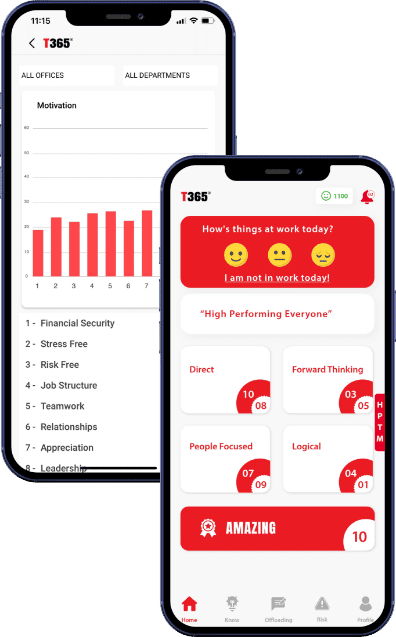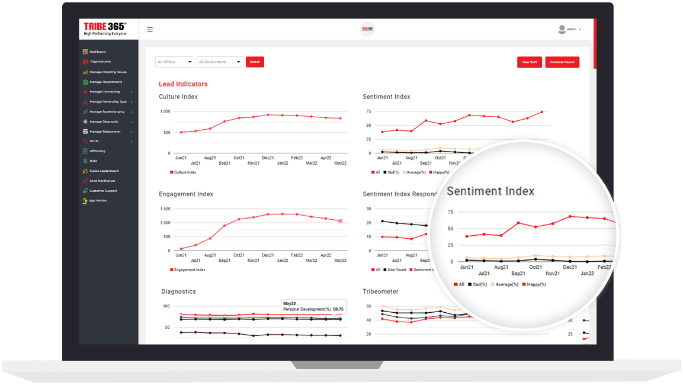What Every Leader Needs to Know About Toxic Work Culture: Behavioural Signs and How to Avoid Them
A quick Google search on toxic work culture will give you an overwhelming number of hits. It has become somewhat of a buzzword in recent years, and it’s no wonder why. With the ever-increasing demands of the modern workplace, more and more employees are finding themselves in unhealthy, unhappy and even abusive situations. As a result, businesses and organisations are starting to take notice of the problem and look for ways to address it.
So, what exactly is toxic work culture? While there is no official definition, we can think of it in terms of the negative behaviours and attitudes that are present in an organisation – whether that is individual behaviours, team behaviours, leadership behaviours, or organisational behaviours. The culmination of these negative behaviours can create a toxic environment that is harmful to both employees and the business itself.
What is a Toxic Work Culture?
Toxic work cultures can have a detrimental effect on employee morale, motivation and productivity. They can also lead to high levels of stress and anxiety, which can have serious implications for employee health and wellbeing. In extreme cases, toxic work cultures can even result in mental health problems such as depression and burnout.

Toxic work culture. It’s a phrase we hear more and more often in the corporate world. But what does it actually mean? And how can we avoid creating one in our own organisations? In this article, we’ll explore what toxic work culture is, and take a look at some of the behavioural signs that it might be developing. We’ll also discuss ways to avoid it and how to address it if it’s already a problem.
Effects of the Covid Pandemic on Work Culture
The Covid pandemic has had a profound effect on work culture. The sudden and unexpected shift to remote working arrangements put immense pressure on employees, who were faced with the challenges of trying to juggle work and home life whilst also dealing with the stress and anxiety of the situation. As many employees are now making the shift back into the office, there is a risk that toxic work culture could become even more prevalent.

Whether because of the increased pressure to perform, the boiling pot of emotions that have accumulated during the pandemic, or an organisation’s fight to survive, it’s crucial that leaders are aware of the potential risks and are taking steps to avoid them.
Signs of a Toxic Work Culture
Toxic work culture can manifest in a number of ways with many signs that a toxic work culture might be developing. A general feeling of disharmony and disengagement within the organisation is often one of the first signs.
Some other common signs and behavioural indicators include:
- Employees are afraid to speak up or voice their opinions for fear of retribution.
- A lack of trust, respect and cooperation between employees and managers.
- Employees feel like they are constantly being monitored and micro-managed.
- There is a blame culture, where employees are quick to point the finger rather than take responsibility for their own actions.
- There is a fear of failure, where employees are afraid to take risks or try new things for fear of ridicule or punishment.
- Decisions are made without consulting employees or taking their opinions into account.
- There is a lack of transparency, communication and collaboration within the organisation.
- Employees feel like they are not being recognised or valued for their contributions.
How to Avoid Toxic Work Culture
If you’re noticing any of these signs in your organisation, it’s vital to take action to address them. Toxic work culture can have a negative impact on employee morale, engagement and productivity, and can ultimately lead to high turnover rates.
So how can you avoid breeding a toxic company culture?
When addressing a toxic work culture, prevention is always better than cure. By taking steps to create a healthy, positive company culture from the outset by encouraging and reinforcing the right behaviours, you can avoid the problems associated with a toxic work environment further down the line. And if you’re already dealing with signs of a toxic workplace, thankfully, there are things you can do to turn it around. This might involve opening up channels of communication so that employees feel like they can voice their concerns or developing a clear set of company values that everyone can buy into.
Here are some key things to consider:
Work Towards a Common Vision
Many organisations may not be clear on what their vision is, let alone whether all employees are aware of and working towards it. A shared sense of purpose is crucial for creating a positive company culture, as it gives employees something to rally behind and helps create a sense of belonging. If your organisation has yet to develop a clear overall vision for the future, you can start with finding common ground in a vision for a company culture that everyone believes in and is committed to working towards.
No employee, leader or organisation wants to be part of a toxic work culture, so by agreeing on what a positive company culture looks like, you can start to take steps to create it. Getting together and unpacking the negative aspects of your current work environment can be a great starting point.
Encourage the Right Behaviours
One of the most important things you can do to prevent a toxic work culture from developing is to encourage and reinforce the behaviours that support a healthy workplace.
This includes things like:
- Respecting boundaries and maintaining a healthy work-life balance
- Encouraging open communication
- Promoting a culture of feedback
- Fostering a spirit of collaboration
- Building trust
- Recognising and celebrating successes

Making sure that these behaviours are encouraged at all levels of the organisation, from the top down, will help to create a positive company culture that is resistant to the harmful effects of a toxic workplace.
Create an Inclusive Environment
An important part of creating a positive company culture is ensuring it is inclusive and welcoming to all employees. This means creating an environment where everyone feels like they can be themselves without fear of judgement or discrimination. It also means providing opportunities for everyone to progress and develop within the organisation, regardless of their background or identity.
Lead by Example
As a leader, it’s important to set the tone for the rest of the organisation and model the behaviours you want to see in your team. If you’re expecting employees to be collaborative, open and honest, you must be prepared to do the same. Creating a safe and supportive environment starts with you, so make sure you’re leading by example!
Conclusion
A toxic work culture is not something that can be fixed overnight. It takes time, effort, and a lot of hard work to change the behaviour of individuals within an organisation. However, it is possible to create a healthy and positive work environment by being aware of the warning signs and fostering positive values and behaviours. By following these steps, leaders can build a culture of respect, trust, and teamwork that will benefit both the organisation and its employees.

Have more questions about building a healthy work culture or need help fixing a toxic work environment? Get in touch to see how we can help you create a positive and productive workplace where everyone can thrive.

Interested in finding out more?
Book a meeting in with the Tribe team
today on +44 (0) 1325734847 or at
team@tribe365.co

















